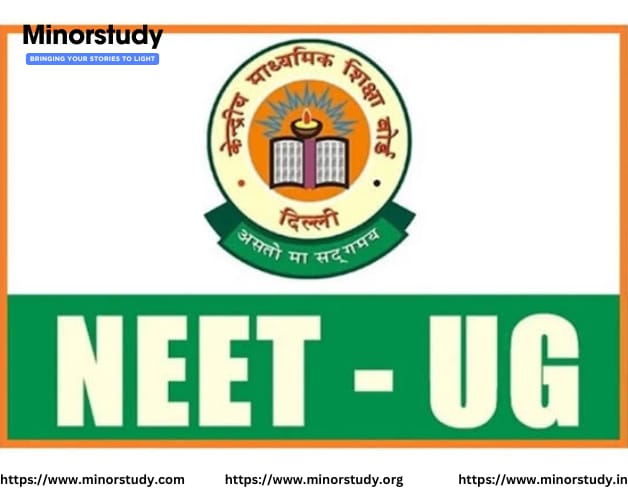🧠 What is NEET?
The National Eligibility cum Entrance Test (NEET) is the centralized entrance exam in India for undergraduate admissions into:
- 🧠 What is NEET?
- 🏛️ History of NEET
- 📅 Timeline of NEET
- 📌 7 Surprising Truths About NEET You Must Know
- 📚 NEET Exam Pattern
- 🎯 Importance of NEET in Modern India
- 🎓 Eligibility Criteria
- 🏫 NEET Seat Distribution
- 💬 Frequently Asked Questions (FAQs)
- 🎉 Heartfelt Wishes to NEET Aspirants
- 🙌 Observance and Social Impact
- 🧠 Important Points to Remember
- ❤️ Why NEET is Important in Our Life and Society
- 🧾 Conclusion: Daily Life Impact of NEET
MBBS (Bachelor of Medicine, Bachelor of Surgery)
BDS (Bachelor of Dental Surgery)
BAMS (Ayurveda)
BUMS (Unani)
BHMS (Homeopathy)
Other AYUSH courses
Veterinary and certain nursing programs
It is conducted by the National Testing Agency (NTA) and is mandatory for all medical aspirants in India.
🏛️ History of NEET
The journey of NEET is both evolutionary and revolutionary, redefining India’s medical admission landscape.
🔹 Key Historical Milestones:
Pre-2010s: Multiple entrance exams like AIPMT, state PMTs, and individual medical college tests were held.
2012: NEET was proposed and introduced by CBSE.
2013: NEET was struck down by the Supreme Court due to objections from private colleges and states.
2016: Supreme Court reversed its earlier verdict, and NEET was reinstated.
2017 onwards: NEET became the single entrance exam for all medical colleges across India (except AIIMS and JIPMER until 2019).
2020: AIIMS and JIPMER merged under NEET umbrella.
2021–Present: NEET is conducted by NTA annually with over 2 million students appearing each year.
📅 Timeline of NEET
| Year | Milestone |
|---|---|
| 2010 | Proposal for single medical exam (NEET) initiated |
| 2012 | NEET introduced by CBSE |
| 2013 | NEET cancelled by Supreme Court |
| 2016 | NEET reintroduced; SC reverses previous ruling |
| 2017 | NEET becomes compulsory for all colleges |
| 2020 | AIIMS & JIPMER included in NEET |
| 2021 | NTA continues NEET with new exam format |
| 2023 | Over 20 lakh students registered for NEET UG |
📌 7 Surprising Truths About NEET You Must Know
NEET is the World’s Largest Medical Entrance Test, with over 20 lakh applicants annually.
It’s the only gateway to all medical colleges—government, private, and deemed universities.
NEET has no upper age limit for appearing (as per latest SC ruling).
Some foreign countries accept NEET scores for Indian students applying abroad (e.g., Russia, Ukraine).
NEET is available in 13 languages, including Hindi, English, Bengali, Gujarati, Tamil, Telugu, Urdu, and more.
All India Quota (AIQ) ensures 15% of govt medical seats are open to candidates nationwide, improving equity.
The NEET syllabus is heavily based on NCERT books, making strategic preparation crucial.
📚 NEET Exam Pattern
| Section | Subjects | Questions | Marks |
|---|---|---|---|
| Section A | Physics | 35 | 140 |
| Section B | Physics | 15 (Choose 10) | 40 |
| Section A | Chemistry | 35 | 140 |
| Section B | Chemistry | 15 (Choose 10) | 40 |
| Section A | Biology (Botany + Zoology) | 70 | 280 |
| Section B | Biology (Botany + Zoology) | 30 (Choose 20) | 80 |
🔸 Total Marks: 720
🔸 Duration: 3 hours 20 minutes
🔸 Negative Marking: Yes (-1 per wrong answer)
🎯 Importance of NEET in Modern India
✅ Merit-Based Admissions
NEET standardizes the admission process across states, eliminating donation culture and ensuring equal opportunity.
✅ Transparency
With NTA’s OMR sheets, answer keys, and grievance redressal mechanisms, NEET ensures a fair and transparent system.
✅ Reduces Pressure
Earlier, students had to prepare for multiple entrance tests. NEET has simplified this into a single, national-level exam.
✅ Encourages Early Preparation
NEET has pushed schools and coaching centers to focus on foundational learning from class 11 onward, improving quality.
🎓 Eligibility Criteria
Age: Minimum 17 years
Educational Qualification:
10+2 with Physics, Chemistry, Biology/Biotech and English
Minimum 50% aggregate for UR; 40% for SC/ST/OBC
Number of Attempts: Unlimited (as per current rule)
Nationality: Indian citizens, NRIs, PIOs, OCIs, Foreign Nationals
🏫 NEET Seat Distribution
| Category | Quota | Seat Type |
|---|---|---|
| AIQ | 15% | Govt medical colleges |
| State Quota | 85% | Domicile students |
| Deemed Univ. | 100% | NEET-based |
| Private Colleges | 100% | NEET-based |
| Central Institutes (AIIMS, JIPMER) | 100% | NEET-based |
💬 Frequently Asked Questions (FAQs)
Q1: Is NEET tougher than JEE?
A: NEET has more competition due to high applicant volume, but JEE Advanced is conceptually harder.
Q2: Can I become a doctor without NEET?
A: No, NEET is mandatory for MBBS, BDS, and AYUSH courses in India and even for studying MBBS abroad.
Q3: How many seats are there under NEET?
A: Approx. 1 lakh MBBS seats, 26,000 BDS seats, 52,000 AYUSH seats (as of 2024).
Q4: Are coaching classes necessary?
A: Not mandatory but self-study + NCERT + mock tests is key. Coaching helps with structured learning.
Q5: What is a good NEET score?
A: Varies. 600+ is considered excellent. Cut-offs for Govt. MBBS range between 580–650 depending on category and state.
🎉 Heartfelt Wishes to NEET Aspirants
🌟 “To every dreamer of the white coat – may your hard work, patience, and persistence shine through. May NEET be your gateway to a healing future.” 🌟
🙌 Observance and Social Impact
National NEET Result Day feels like a festival among aspirants.
Millions of families watch with pride and hope.
NEET has also led to the emergence of thousands of educators and institutions creating employment and innovation.
It has reduced regional disparities, giving rural and urban students equal opportunity.
🧠 Important Points to Remember
NEET is compulsory for MBBS, BDS, BAMS, BHMS, BUMS, BSMS, etc.
Only 1 exam for all medical colleges (Govt + Pvt + Deemed)
NEET score is valid for 1 year for India and abroad
Read NCERT thoroughly
Focus on accuracy and time management
❤️ Why NEET is Important in Our Life and Society
NEET selects the best minds to become future doctors—saviors of society.
Promotes equal access to education, helping students from rural backgrounds get into AIIMS or other top colleges.
Raises the bar for science education in India.
Keeps the admission process corruption-free and transparent.
Fuels the nation’s health infrastructure with skilled professionals.
🧾 Conclusion: Daily Life Impact of NEET
NEET has not just changed the lives of aspirants—it has transformed the face of Indian medical education. Every year, students across India rise at dawn, study till late, and give their all for a single exam that can change the trajectory of their life and society.
For many, it is a ticket to dreams of becoming a healer, a lifesaver, a doctor. For others, it is a symbol of India’s stride toward meritocracy, excellence, and equal opportunity.
So whether you clear it or not in one go, the preparation for NEET itself makes you disciplined, strong, and focused — qualities that last a lifetime.








